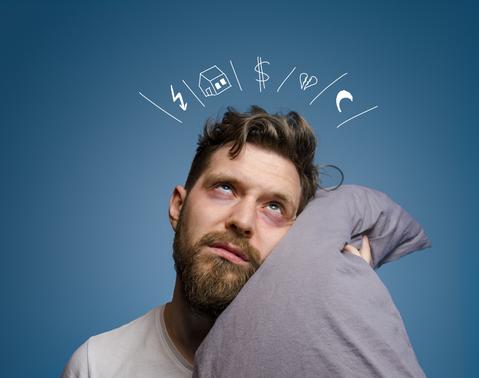If you’re reading this, odds are you’re already aware of the basic life hacks meant to help you get better sleep. You know the ones. Get more exercise, start adhering to a consistent bedtime, put down the smartphone at night, shut the laptop, change your diet, take some melatonin, and the list goes on. And again, if you’re still reading this, odds are those tactics aren’t doing the trick and insomnia is starting to get the best of you.
Here’s something else you’re already very aware of: sleep is really important. It can affect both your mental and physical health, with better brain function, muscle recovery, hormone balance, longevity, and even fat burning reliant on your quality or quantity of rest, but at least approximately four out of every five people wrestle with occasional insomnia.
“I think sleep is honestly one of the greatest biohacks and the biggest performance-enhancing thing that you can do,” says sleep expert and Oura Ring creator Harpreet Rai. “Sleep is the foundation of our health and the foundation of our body and mind.”
Now without healthy sleep, you’re looking at a slew of potential problems. After about 19 hours without sleep, your brain starts to function significantly slower. Your reaction time, attention, memory, and mental accuracy all drop significantly — the equivalent of having a blood alcohol concentration of 0.05 percent. Round it out to a full 24 hours without sleep and that brain function is on par with somebody who is legally drunk with a 0.08 BAC. This is because while you’re sleeping, your brain is busy cleaning away and flushing out cellular waste, prepping you for quicker mental processing and even a better mood. And this is just the tip of the iceberg on one night of no sleep or poor sleep, long before we start discussing what happens to your brain and body with consistently poor sleep.
One thing many people are turning to for help with sleep is CBD, taken in a variety of forms.
“CBD appears to help with sleep because of its anti-anxiety properties and ability to promote relaxation,” says Gretchen Lidicker, author of CBD Oil: Everyday Secrets: A Lifestyle Guide To Hemp-Derived Health and Wellness. “These studies mainly point to CBD’s ability to interact with ... serotonin receptors and GABA receptors in the brain,” she explains. “Serotonin plays an important role in mood and anxiety, and GABA is known as the main ‘inhibitory’ neurotransmitter, meaning it calms excess activity in the brain and promotes relaxation. GABA receptors are the target of benzodiazepines, which are a class of anti-anxiety drugs.”
According to Lidicker, CBD is effective in helping people sleep because of its ability to bring us to a calmer, more relaxed state. This is why it’s also used for battling anxiety, reducing stress, and a number of other symptoms in which overcoming them requires maintaining some level of relaxation.
So if you feel like you’ve tried every natural sleep hack possible to no avail and are also doing your best to avoid medicated or prescribed sleep aids, you now have one more potential treatment to add to your list.
Good luck. And get some rest already.

